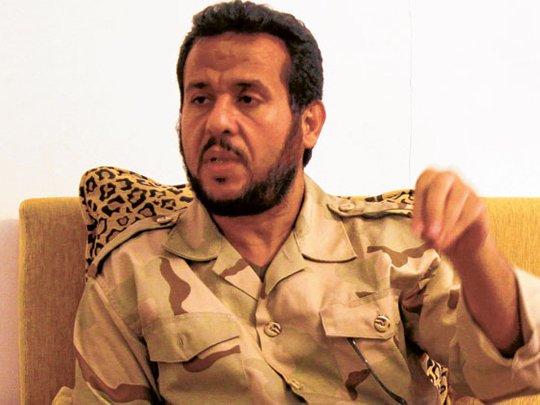
Tripoli: One of Libya's senior revolutionary commanders has demanded an apology from the British and American governments following the discovery of secret documents which show that MI6 and the CIA were involved in a plot that led to his capture and torture.
Abdul Hakim Bel Haj, the security commander in Tripoli, told the Guardian he is considering suing over the episode, which raises further damaging questions over Britain's knowledge of the rendition and ill-treatment of prisoners.
One document found in a treasure trove of abandoned papers shows a senior MI6 officer boasting to the Libyans about how British intelligence led to Bel Haj being captured on March 6, 2004.
Then a leading dissident member of the Libyan Islamic Fighting Group (LIFG), Bel Haj was seized in Bangkok and handed over to the CIA, who he alleges tortured him and injected him with truth serum before flying him back to Tripoli for interrogation.
Documents show that five days before he was taken back to Tripoli, MI6 gave Libya Bel Haj's French and Moroccan aliases, and told them he was in detention in Sepang, Malaysia.
Bel Haj told the Guardian that British spies were among the first to interrogate him after he was returned to Tripoli, and that he was very "surprised that the British got involved in what was a very painful period in my life".
"I wasn't allowed a bath for three years and I didn't see the son for one year," he told the Guardian. "They hung me from the wall and kept me in an isolation cell. I was regularly tortured."
Bel Haj was released from the Libyan version of Abu Ghraib, Abu Salim prison, earlier this year after an amnesty announced by Gaddafi. He quickly took a lead role in the revolution that ousted Gaddafi two weeks ago.
"This will not stop the new Libya having orderly relations with the United States and Britain," he said. "But it did not need to happen," he added.
Irrefutable proof
Scores of files, which were found abandoned at the British embassy and in the offices of senior members of the former regime, not only point to direct involvement of MI6 in this case; they also set out in sometimes excruciating detail how closely UK agencies were working with Libyan officials after Gaddafi came in from the diplomatic cold in 2004.
The papers also show how MI5 appeared to seek a trade of information about Libyan dissidents in London for morsels of intelligence gleaned from Tripoli despite Libya's reputation for torturing prisoners.
Whitehall officials yesterday defended the links with Libya, saying the agencies were conducting themselves in line with "ministerially authorised government policy".
The Bel Haj episode will be particularly discomforting for MI6, and may form part of the forthcoming inquiry chaired by Sir Peter Gibson, which is set to investigate the UK's role in rendition, and the security services' knowledge of the torture and mistreatment of terrorist suspects.
On Sunday he told the Guardian how he was tortured in Bangkok by two CIA agents, before being returned to Libya, where he was tortured again.
"I was injected with something, hung from a wall by my arms and legs and put in container surrounded by ice," he said. "They did not let me sleep and there was noise all the time. And then they sent me to my enemy."
MI6 knew of his whereabouts because Bel Haj was attempting to seek asylum in the UK, information that British officials appear to have used to get him arrested.
The papers indicate that, in all, eight prisoners were captured and put on CIA ‘rendition' flights back to Libya during this period.












